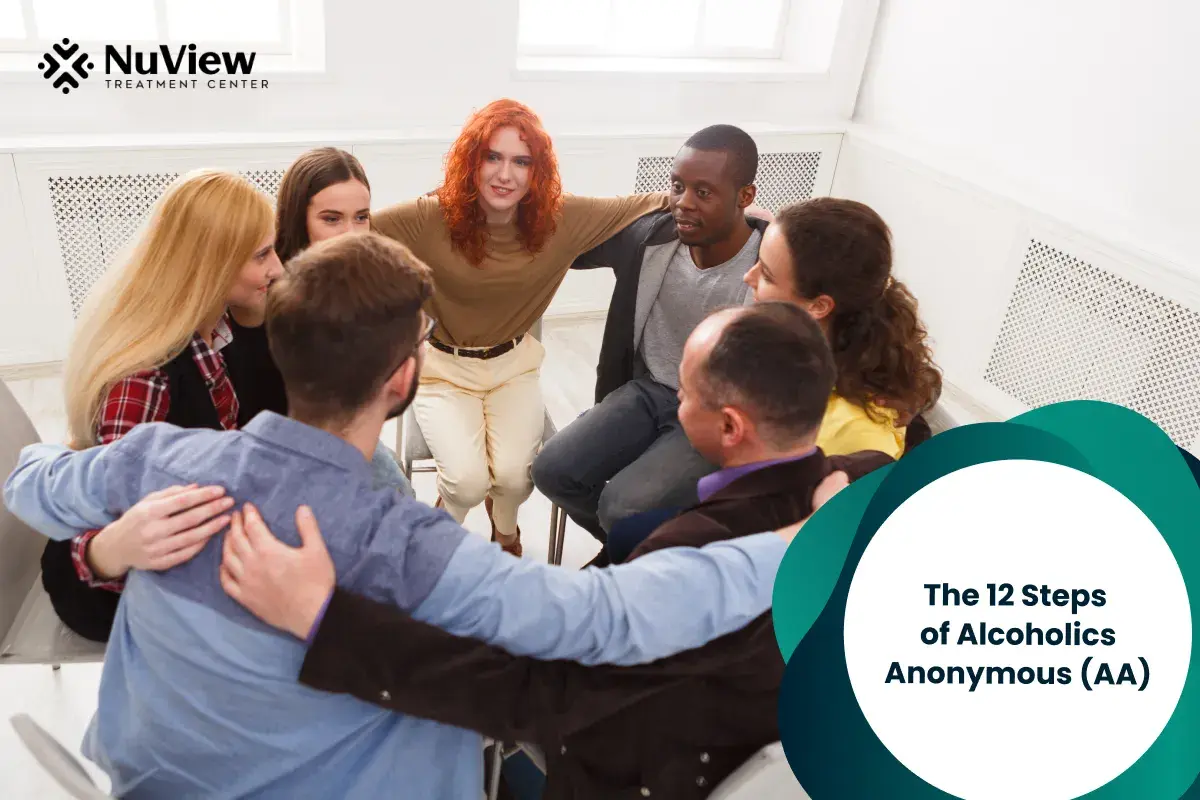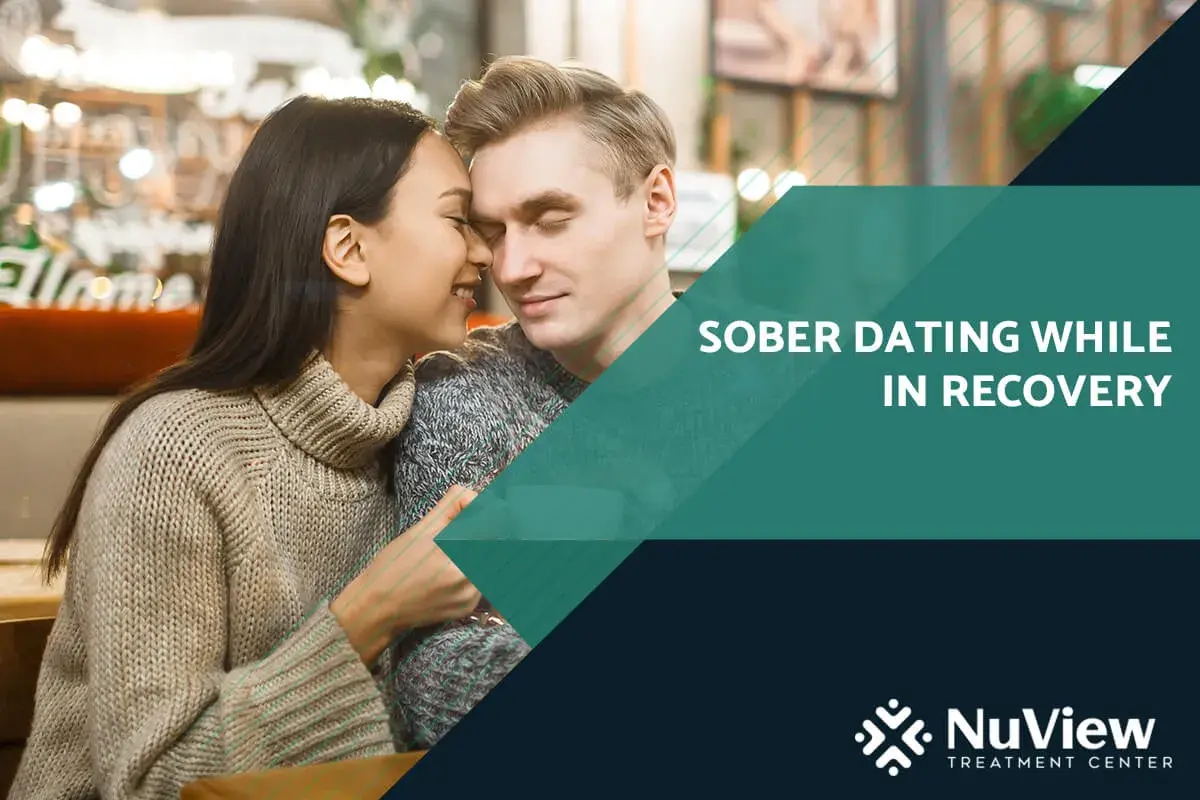Starting recovery can feel overwhelming, but the 12 Steps of AA provide a clear, compassionate guide. Whether you’re just beginning or seeking renewed inspiration, understanding these steps can light the way to lasting change.
The 12 Steps of Alcoholics Anonymous (AA) are spiritual principles and guidelines designed to help individuals recover from substance use and achieve personal healing.
While not a formal treatment in the traditional sense, the program is often integrated into structured treatment plans to complement formal substance use recovery efforts.
Do the 12 Steps Really Work?
Yes, while the 12 steps have a more spiritual basis, today even modern science has validated their importance in recovery. It is the most widely used concept of recovery, and you might question if it works.
Research reveals that the core principles of the 12 Steps, including social connection, personal accountability, and behavioral transformation, play a crucial role in helping people maintain lasting sobriety.
AA’s group meetings create a powerful sense of community where individuals share their struggles and victories. This supportive environment helps reduce feelings of isolation and fuels motivation, both vital ingredients for long-term success. They provide a clear, step-by-step framework for self-examination and growth. They make people feel connected to something that is bigger than them, which boosts mental health and builds resilience.
Participation has even been linked to reduced stress and better emotional regulation, helping to curb cravings and lower the risk of relapse by promoting healthier brain function.
What are the 12 steps of AA?
Step 1: We admitted we were powerless over alcohol - that our lives had become unmanageable.
This step is about recognizing that you can't control your drinking or substance use and that it's causing problems. It's the first step in acknowledging the need for change and seeking help.
Step 2: Came to believe that a Power greater than ourselves could restore us to sanity.
In this step, you believe a power or force beyond yourself can help you regain mental and emotional stability. It's about accepting that you don't have to face alcohol addiction alone.
Step 3: Made a decision to turn our will and our lives over to the care of God as we understood Him.
At this step, you're asked to make a conscious choice to hand over internal control of your life to a higher power or your understanding of a higher power. It's a decision to rely on one ultimate authority or something greater than yourself for guidance and support in your recovery.
Get Started With Nuview Treatment Center
Our dedicated professional staff is here to guide you or your loved one on the journey to lasting recovery, offering support every step of the way.
Step 4: Made a searching and fearless moral inventory of ourselves.
This step is like taking a personal inventory of your life. You examine your past actions, behaviors, and good and bad choices. It's a crucial step in understanding the patterns that led to substance use disorder.
Step 5: Admitted to God, to ourselves, and to another human being the exact nature of our wrongs.
In Step 5, you share the results of your moral inventory with a trusted person, often a sponsor or therapist. This is about being honest and acknowledging your mistakes, which can be difficult but is essential for personal growth.
Step 6: Were entirely ready to have God remove all these defects of character.
This step is about letting go of your character flaws and the negative aspects of your personality that may have contributed to your substance use. It's a readiness for change.
Step 7: Humbly asked Him to remove our shortcomings.
In Step 7, you humbly request your higher power, or your understanding of it, to help you eliminate these character flaws. It's a step of surrender and asking for help in becoming a better person.
Step 8: Made a list of all persons we had harmed and became willing to make amends to them all.
This step involves creating a list of people you've hurt during your addiction and being willing to make things right with them. It's about taking responsibility for your actions and seeking to repair damaged relationships.
Get Started With Nuview Treatment Center
Step 9: Made direct amends to such people wherever possible, except when doing so would injure them or others.
In Step 9, you take action by making amends to those you've harmed when it won't cause further harm. This can involve apologies, restitution, or other efforts to make things right.
Step 10: Continued to take personal inventory and, when we were wrong, promptly admitted it.
This step is about ongoing self-reflection and accountability. You regularly assess your actions and admit when you're wrong, ensuring you don't repeat harmful behaviors.
Step 11: Sought through prayer and meditation to improve our conscious contact with God as we understood Him, praying only for knowledge of His will for us and the power to carry that out.
In Step 11, you strengthen your connection with a higher power through prayer and meditation. You seek guidance and the strength to live according to your understanding of your higher power's will.
Step 12: Having had a spiritual awakening as the result of these steps, we tried to carry this message to alcoholics and to practice these principles in all our affairs.
The final step emphasizes that by following the previous 11 steps, you should have undergone a spiritual awakening or transformation. You then share your experience with others who struggle with substance abuse and apply these principles to every aspect of your life.
How do the 12 Steps of AA Help in Addiction Recovery?
Together, the elements of Alcoholics Anonymous create a holistic approach that addresses the emotional, social, and spiritual aspects of addiction, making the 12 Steps a powerful tool for recovery. Here’s how these steps support lasting change:
- Promoting Acceptance and Honesty
- Building a Supportive Community
- Encouraging Personal Responsibility
- Fostering Spiritual and Emotional Growth
- Offering a Structured Pathway
Ready to Explore Your Path to Recovery?
At NuView Treatment Center, we understand that recovery is a deeply personal journey. Whether you're considering the 12-Step program, seeking evidence-based treatment, or exploring other options, we're here to help you find the right path to a healthier, substance-free life.
Contact us today to discuss your treatment needs and discover the treatment options that can best support your recovery journey.
- Do the 12 Steps Really Work?
- What are the 12 steps of AA?
- Step 2: Came to believe that a Power greater than ourselves could restore us to sanity.
- Step 3: Made a decision to turn our will and our lives over to the care of God as we understood Him.
- Step 4: Made a searching and fearless moral inventory of ourselves.
- Step 5: Admitted to God, to ourselves, and to another human being the exact nature of our wrongs.
- Step 6: Were entirely ready to have God remove all these defects of character.
- Step 7: Humbly asked Him to remove our shortcomings.
- Step 8: Made a list of all persons we had harmed and became willing to make amends to them all.
- Step 9: Made direct amends to such people wherever possible, except when doing so would injure them or others.
- Step 10: Continued to take personal inventory and, when we were wrong, promptly admitted it.
- Step 11: Sought through prayer and meditation to improve our conscious contact with God as we understood Him, praying only for knowledge of His will for us and the power to carry that out.
- Step 12: Having had a spiritual awakening as the result of these steps, we tried to carry this message to alcoholics and to practice these principles in all our affairs.
- How do the 12 Steps of AA Help in Addiction Recovery?
- Ready to Explore Your Path to Recovery?
- Do the 12 Steps Really Work?
- What are the 12 steps of AA?
- Step 2: Came to believe that a Power greater than ourselves could restore us to sanity.
- Step 3: Made a decision to turn our will and our lives over to the care of God as we understood Him.
- Step 4: Made a searching and fearless moral inventory of ourselves.
- Step 5: Admitted to God, to ourselves, and to another human being the exact nature of our wrongs.
- Step 6: Were entirely ready to have God remove all these defects of character.
- Step 7: Humbly asked Him to remove our shortcomings.
- Step 8: Made a list of all persons we had harmed and became willing to make amends to them all.
- Step 9: Made direct amends to such people wherever possible, except when doing so would injure them or others.
- Step 10: Continued to take personal inventory and, when we were wrong, promptly admitted it.
- Step 11: Sought through prayer and meditation to improve our conscious contact with God as we understood Him, praying only for knowledge of His will for us and the power to carry that out.
- Step 12: Having had a spiritual awakening as the result of these steps, we tried to carry this message to alcoholics and to practice these principles in all our affairs.
- How do the 12 Steps of AA Help in Addiction Recovery?
- Ready to Explore Your Path to Recovery?
Get Help Today!
- “Have a Problem With Alcohol? There Is a Solution. | Alcoholics Anonymous.” Have a Problem With Alcohol? There Is a Solution. | Alcoholics Anonymous, www.aa.org.
- “The Twelve Steps | Alcoholics Anonymous.” The Twelve Steps | Alcoholics Anonymous, www.aa.org/the-twelve-steps.
- Fiorentine, Robert, and Maureen P. Hillhouse. “Drug Treatment and 12-step Program Participation.” Journal of Substance Abuse Treatment, vul. 18, no. 1, Elsevier BV, Jan. 2000, pp. 65–74. Crossref, https://doi.org/10.1016/s0740-5472(99)00020-3.
- Kelly, John F., et al. “Alcoholics Anonymous and Other 12-step Programs for Alcohol Use Disorder.” Cochrane Database of Systematic Reviews, Wiley, Mar. 2020. Crossref, https://doi.org/10.1002/14651858.cd012880.pub2.
- Mental Health Services Administration (US), Substance Abuse and Office of the Surgeon General (US). “Early Intervention, Treatment, and Management of Substance Use Disorders” – Facing Addiction in America – NCBI Bookshelf, 1 Nov. 2016, www.ncbi.nlm.nih.gov/books/NBK424859.
- Substance Abuse Treatment, Center for. “Chapter 5—Specialized Substance Abuse Treatment Programs – a Guide to Substance Abuse Services for Primary Care Clinicians – NCBI Bookshelf.” Chapter 5—Specialized Substance Abuse Treatment Programs – a Guide to Substance Abuse Services for Primary Care Clinicians – NCBI Bookshelf, 1 Jan. 1997, www.ncbi.nlm.nih.gov/books/NBK64815.
- Tonigan, J. Scott, et al. “Spirituality as a Change Mechanism in 12-Step Programs: A Replication, Extension, and Refinement.” Substance Use & Misuse, vul. 48, no. 12, Informa UK Limited, Sept. 2013, pp. 1161–73. Crossref, https://doi.org/10.3109/10826084.2013.808540.
- Zemore, Sarah E., et al. “Comparison of 12-step Groups to Mutual Help Alternatives for AUD in a Large, National Study: Differences in Membership Characteristics and Group Participation, Cohesion, and Satisfaction.” Journal of Substance Abuse Treatment, vul. 73, Elsevier BV, Feb. 2017, pp. 16–26. Crossref, https://doi.org/10.1016/j.jsat.2016.10.004.
- “Drug Overdose Death Rates | National Institute on Drug Abuse.” National Institute on Drug Abuse, 30 June 2023, nida.nih.gov/research-topics/trends-statistics/overdose-death-rates.
- Luba, Rachel, et al. “Fentanyl Withdrawal: Understanding Symptom Severity and Exploring the Rule of Body Mass Index on Withdrawal Symptoms and Clearance.” Addiction, vul. 118, no. 4, Wiley, Dec. 2022, pp. 719–26. Crossref, https://doi.org/10.1111/add.16100.
- “Chapter 3—Family Counseling Approaches – Substance Use Disorder Treatment and Family Therapy – NCBI Bookshelf.” Chapter 3—Family Counseling Approaches – Substance Use Disorder Treatment and Family Therapy – NCBI Bookshelf, 1 Jan. 2020, www.ncbi.nlm.nih.gov/books/NBK571088.
- “Buprenorphine Use in the Emergency Department Safe for People Who Use Fentanyl.” National Institutes of Health (NIH), 10 Apr. 2023, www.nih.gov/news-events/nih-research-matters/buprenorphine-use-emergency-department-safe-people-who-use-fentanyl.
- “Kratom | National Institute on Drug Abuse.” National Institute on Drug Abuse, 25 Mar. 2022, nida.nih.gov/research-topics/kratom.
- “Multistate Outbreak of Salmonella I 4,[5],12:B:- Infections Linked to Kratom Products | February 2018 | Salmonella | CDC.” Multistate Outbreak of Salmonella I 4,[5],12:B:- Infections Linked to Kratom Products | February 2018 | Salmonella | CDC, 20 Feb. 2018, www.cdc.gov/salmonella/kratom-02-18.
- Prevete, Elisabeth, et al. “A Systematic Review of (Pre)Clinical Studies on the Therapeutic Potential and Safety Profile of Kratom in Humans.” Human Psychopharmacology: Clinical and Experimental, vul. 37, no. 1, Wiley, July 2021. Crossref, https://doi.org/10.1002/hup.2805.
Everyone is Welcome Here and We All Have Your Back
Your healing journey deserves a personalized approach. At NuView, we integrate expertise in behavioral therapy, mental health, and substance use treatment to create a customized recovery plan tailored to your unique needs.
Connect with our Admissions Specialists today.







Written By
Dr. Ryan Peterson